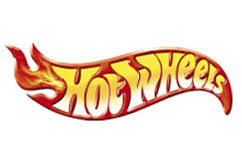Widgetized Section
Go to Admin » Appearance » Widgets » and move Gabfire Widget: Social into that MastheadOverlay zone
USC, Mattel team up on free Hot Wheels Speedometry curriculum
USC Rossier School of Education, in collaboration with the Mattel Children’s Foundation, has launched “Speedometry™,” a free-to-use curriculum that utilizes Hot Wheels® toys to teach elementary-age students science, technology, engineering and mathematics (STEM). “Speedometry” is tailored for children in fourth grade and emphasizes hands-on discovery and learning.
The curriculum is available at www.hotwheels.com/speedometry.
 Speedometry offers students a means of exploring scientific concepts such as velocity and gravity, kinetic energy and more while providing teachers with a powerful new teaching tool. Additionally, the curriculum supports teaching the skills within the Common Core State Standards and Next Generation Science Standards, ensuring clear expectations for students as well as relevant real-world application.
Speedometry offers students a means of exploring scientific concepts such as velocity and gravity, kinetic energy and more while providing teachers with a powerful new teaching tool. Additionally, the curriculum supports teaching the skills within the Common Core State Standards and Next Generation Science Standards, ensuring clear expectations for students as well as relevant real-world application.
The two-unit Speedometry Curriculum was designed for fourth graders using the 5E Instructional Model (Engage, Explore, Explain, Elaborate and Evaluate) to support students as they ask questions and conduct experiments to find the answers. The 5Es integrate hands-on activities that help foster conceptual understanding and inspire students to explore further. Next Generation Science Standards at the fourth grade level were particularly conducive to focusing on energy and transfer of energy through Speedometry. The lessons were also created to align with Common Core Math Standards in fourth grade.
“Speedometry is a perfect example of the meaningful difference play can make in the development of children,” said Robert Goodwin, Executive Director of the Mattel Children’s Foundation. “Together, USC researchers and Mattel Hot Wheels designers were able to combine a favorite toy with the latest education techniques to create a curriculum that makes learning easy and fun. We are proud to make this program free for parents and educators and know it will give thousands of children the knowledge they need for future success.”
Five USC Rossier faculty experts head the research team. Gale Sinatra, Julie Marsh, Morgan Polikoff, Frederick Freking and Angela “Laila” Hasan bring expertise in the cognitive and motivational processes that lead to successful learning in science and math, parent and student engagement, curricular reform and Common Core standards. They are assisted by USC Rossier Assistant Dean for Research Cathryn Dhanatya.
The Mattel Children’s Foundation has invested more than $1 million in this project to date, making it possible for USC Rossier to pilot the curriculum in fourth grade classrooms in three Southern California schools and conduct further testing in a large urban school district. Teacher feedback as well as student knowledge, engagement and motivation have been strong and positive in the pilot sites, according to USC Rossier’s researchers. Additional testing will allow researchers to formally verify the promising early learning outcomes for students. The original three-school pilot also tested a kindergarten curriculum that will be further developed at a later time.
In addition to the free curriculum for teachers, the website also offers professional development tools for teachers to implement the program as well as a Family Engagement component. A Spanish-language version, as well as learning assessment tools, will be available online later this fall.
“With America’s need for more college graduates entering the STEM fields, teachers need to find ways to make scientific topics engaging and accessible for students from an early age,” USC Rossier Dean Karen Symms Gallagher said. “This exciting partnership has created a curriculum that brings science and math to life for kids and is grounded by the research and assessment of leading Rossier experts in education.”


